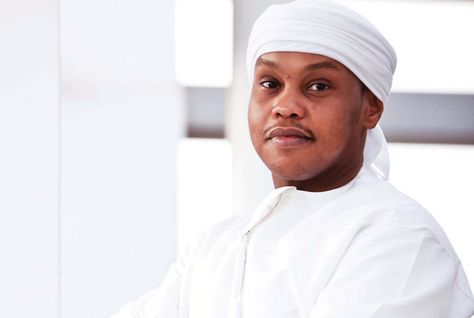
Sudan’s Mohammad Baloola says his invention can eradicate an emerging Gulf disease: diabetes.
As a biomedical engineering student at Ajman University of Science and Technology, Mohammad Baloola found homegrown inspiration for his final year project. Four members of his family are diabetic, a collective muse for his ingenious artificial pancreas. The pancreas is the body’s sole provider of insulin, its functionality critcally linked to diabetes.
His device works in tandem with a cell-phone-sized handheld carried by the patient, which allows doctors to remotely monitor glucose levels (integral GPS also tracks the patient’s location). The system can be linked to a hospital database enabling immediate medical response if sugar levels destabilize.
Baloola’s been tinkering with improvements since developing the unit in 2008. The product now has 86 custom versions allowing patients to choose one bespoke to their condition.
Over 350,000 people in the United Arab Emirates (UAE) are diabetic and that’s expected to double by 2030 due to poor diet, insufficient physical activity and rapidly rising obesity. Scientists predict similar soar rates throughout the Middle East as old habits are replaced by modern consumption habits and sedentary living.
Diabetes affects approximately 19% of UAE adults. According to the International Diabetes Federation: about 25% of Emirati men and 40% of women are obese. Over 12% of Saudi Arabian adults are diabetic. Bahrain, Kuwait and Oman rank among the top eight countries worldwide for the disease. The World Health Organization estimates diabetes treatment costs on average 9% of the total Gulf Cooperation Council (GCC) healthcare budget. Untreated, financial impacts of the disease could have a devastating effect on local economies.
Preventative care is slowing starting to get press, but Baloola remains focused on treatment. He believes his device could help save GCC governments millions in associated medical costs. “The biggest problem from diabetes is kidney failure, which occurs in critical situations, requiring dialysis three times a week, which is difficult for the patient and expensive for the government,” he told ArabianBusiness.com. His invention is particularly suited for children suffering from Type 1 diabetes as it enables parents to constantly monitor sugar levels and react quickly to abnormalities.
Baloola’s invention is attracting attention within global scientific communities. Last year he was awarded $10,000 by the Tumoohat Shabab (Young Ambitions) program, sponsored by Sharjah Television and he also received the Arabian Business Achievement Awards science and innovation prize. He’s a fixture at medical conferences across the world, presenting his ideas to the wider medical profession.
[youtube]http://www.youtube.com/watch?v=3moQ9IqhuF4[/youtube]
Baloola, now a biomedical engineering teaching assistant at his alma mater, is in partnership with an unnamed pharmaceutical brand. Together thay’re working to produce a patentable prototype. “There are many companies working in this area but not all of their monitors are as accurate,” he says.
Baloola’s goal is to make his invention economically accessible with a retail price approximating $55: roughly the same cost as the obligatory glucose meter in every diabetic’s bag of tricks.
Kudos to Baloola for this promising breakthrough. But he is not the only one working on an artificial pancreas. Researchers from the company MD Logic are well on their way of developing a commercial product.
Innovative remedies are good stuff. They can work hand-in-glove with techniques for disease avoidance. Take this triplet tip from author and food activist Michael Pollan: Eat food. Not too much. Mostly plants. And give a nod to flamboyant fitness guru Richard Simmons: would it kill us to get physical, do some sweatin’ to the oldies? Welcome the new, and press on with prevention.
Image of Mohammad Baloola via ArabianBusiness.com




Excellent work mashallah.
We need more and more role models like Mr. Baloola. The first word in the Quran is Iqra which is a command to read and it symbolises pursuit of science and knowledge…
pdrisc
I agree, and was very frustrated in my search for more detail regarding the fuctionality of the unit. (The remote monitoring device gets better coverage than the actual artificial pancreas). I reached out to the University, seeking to contact Mr. Baloola (to no avail),exhaustively searched on line, and also discussed the story with doctor acquaintances to see if perhaps Baloola got press in US medical journals – no luck on any front.
Simply based on the credibility bestowed by his awards and institutional recognition (cited in the article), I take his “invention” to be bona fide, and wrote the story (admittedly light in scientific detail) to share this promising development with the many affected by this disease.
Thanks for your comment.
This article is particularly lacking in important specifics. As this article notes, the pancreas is indeed linked to diabetes, but while Mr. Baloola supposedly has created an “artificial pancreas” the article says nothing about the most central role provided by the pancreas and that is the appropriate delivery of normal insulin, and without doing so the article fails miserably in reporting on what would be a remarkable development. The only function this article notes about Mr. Baloola’s device is that it monitors blood glucose. An artificial pancreas, by the most basic definition, must both monitor blood glucose and in a biofeedback loop deliver insulin at the correct rate. Further, even if such a device is created (and developments by companies like Medtronic have made this quite likely in the next few years), it does NOT eradicate diabetes. Perhaps Mr. Baloola has created an artificial device or perhaps not. If indeed he has, then this article is an exceedingly poor source of information on the development.
So right, Maurice – the potential is mind-boggling.
If his invention is proven to work, he could wind up being one of the most innovative health care people since Louis Pasteur.